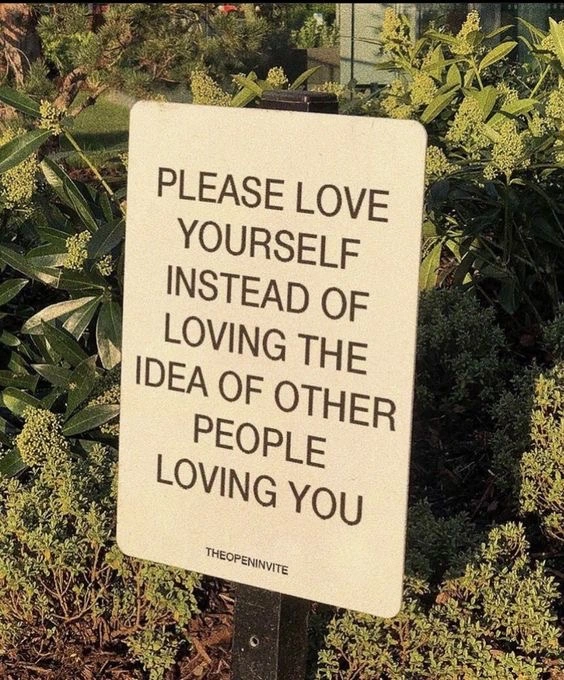How to Reclaim Your Inner Power Through Deep Self-Compassion
I’m thrilled you’re here, ready to embark on an amazing journey of reclaiming your inner power through deep self-compassion.
Trust me, this is going to be an enlightening and transformative adventure!
So, grab your favorite beverage, get comfy, and let’s dive deep into this fascinating topic together.
1. What’s Inner Power Anyway?

Alright, let’s start with the basics. Inner power—it sounds pretty intense, doesn’t it? But really, it’s just about feeling confident and strong from the inside out.
It’s not about being perfect or achieving extraordinary things all the time. It’s more about knowing that, even when things get tough, you have an inner strength to rely on.
Researchers from the University of California, Berkeley, say inner power is all about self-efficacy—the belief that you can influence your own outcomes and deal with challenges effectively. Cool, right?
2. Why Do We Lose Touch With It?
So, why do we sometimes lose that amazing sense of inner strength? Life can be pretty chaotic, and it often shakes our confidence. Let’s break it down:
Unrealistic Expectations
We’re constantly bombarded with images of perfection—social media, advertisements, you name it! It’s easy to feel like we’re not measuring up. And you’re not alone here! I’ve been through the same.
A study from the Journal of Behavioral Medicine found that these unrealistic standards can increase anxiety and lower self-esteem.
When you’re always comparing yourself to these impossible standards, it’s no wonder your inner power can feel a bit shaky!
Negative Self-Talk
Ever notice that inner critic of yours? The one that says you’re not good enough or that you’ve messed up?
Dr. Kristin Neff’s research shows that this kind of negative self-talk can increase stress and make you feel less happy.
It’s like having a constant nagging voice in your head that just doesn’t quit. I’m speaking from experience here! It can be extremely annoying.
Comparison
Social media is a double-edged sword. It’s great for staying connected, but it also makes it super easy to compare ourselves to others. We tend to forget that a lot of the people we see on social media only show their best sides!
A study by Vogel et al. (2014) found that comparing ourselves to others can make us feel worse about ourselves.
That’s not a surprise!
Remember, everyone has their own journey, and comparing yours to someone else’s is a fast track to feeling inadequate.
Life’s Challenges
Setbacks and failures are part of life! But they can sometimes make us doubt our worth. It’s important to remember that these challenges don’t define us. They’re just bumps in the road, not the end of the journey.
Henry Ford
“Obstacles are those frightening things you see when you take your eyes off the goal.”
3. The Magic of Self-Compassion

Here’s where things get really interesting. Self-compassion means treating yourself with the same kindness and understanding you’d give to a close friend. It’s not just a fluffy idea—it’s a practical way to boost your inner strength and resilience!
Self-compassion has three main parts, according to Dr. Kristin Neff: self-kindness, common humanity, and mindfulness.
Self-kindness is about being gentle with yourself, especially when you mess up. Common humanity means realizing that everyone struggles and makes mistakes—so you’re not alone.
Mindfulness is about being present with your feelings without getting overwhelmed.
Together, these elements help you build a positive and nurturing inner dialogue!
4. The Science Behind Self-Compassion
Let’s geek out a bit with some science. I really love to add scientific evidence because it helps me and you find the right solutions! The benefits of self-compassion are well-documented, and they’re pretty impressive:
Reduces Stress and Anxiety
Self-compassion can seriously lower your stress levels! Research published in the Journal of Anxiety, Stress, & Coping found that people with higher self-compassion experience less anxiety and depression. When you’re kind to yourself during tough times, you build a buffer against stress.
Enhances Emotional Resilience
Self-compassion makes you more resilient! A study in the journal Emotion found that people who practice self-compassion bounce back more easily from negative experiences.
Maya Angelou
“Nothing will work unless you do.”
Improves Overall Well-Being
People who practice self-compassion generally feel happier and more satisfied with life. Research from the University of Texas found that self-compassion is linked to greater life satisfaction and better relationships.
Encourages Healthy Behaviors
Self-compassion also leads to healthier habits! A study in the Journal of Behavioral Medicine found that people who practice self-compassion are more likely to engage in healthy behaviors like eating well and exercising. It’s easier to make good choices when you’re treating yourself kindly!
Tara Mohr
“Where we think we need more self-discipline, we usually need more self-love.”
5. Self-Compassion vs. Self-Esteem: What’s the Difference?

You might be wondering how self-compassion differs from self-esteem. Here’s the scoop:
Self-Esteem
Often, self-esteem is about comparing yourself to others and measuring your worth based on achievements. It’s like setting up a scoreboard for yourself, and your score can go up or down based on external factors. This can sometimes lead to feeling insecure if you’re not measuring up!
Self-Compassion
On the other hand, self-compassion is more about being kind to yourself, regardless of how you measure up against others. It’s a steady, unconditional form of self-acceptance. Dr. Kristin Neff’s research shows that self-compassion leads to better emotional health and less self-criticism compared to self-esteem.
It’s not about comparing; it’s about caring for yourself no matter what!
6. Practical Steps to Self-Compassion
Ready to put some of this into practice? Here are some straightforward ways to boost your self-compassion:
1. Embracing Your Imperfections

Let’s get real for a minute: nobody’s perfect. Embracing your imperfections is a huge part of self-compassion. It’s about accepting that you’re human and that’s perfectly okay. Stop comparing yourself with others!
Whether that’s personality-wise or physically, you are who you’re supposed be, and thank God for that! This has been a huge problem in society and, specifically when it comes to physical appearance.
Everyone is trying to look like someone else and that’s not how it should be.
We should be thankful for our appearance and be content with the features that we have. Trust me, I can point out a hundred details that I don’t like about my body. But at the end of the day, you should be asking yourself: Who am I trying to impress?
Of course, if you want to hit the gym and eat healthy, that’s different! That is self-compassion.
Action Step: Grab a notebook and jot down your strengths and weaknesses. Look at them with a kind eye. And write yourself a letter acknowledging your imperfections and celebrating what makes you unique.
This can help shift your perspective and make self-compassion feel more natural. And you are going to get a better understanding of your thought process and the way you view yourself, which is really important.
You’ve got to treat the cause and not the symptoms!
2. Mindful Self-Compassion Exercises
Mindfulness and self-compassion go hand in hand. Being mindful helps you stay present, and adding self-compassion makes it even more powerful.
You’re able to understand the “behind the scenes” of your thought processes. And this can be really beneficial because you will be able to slowly change the way you think about yourself.
Exercise: Try a simple mindfulness meditation! Sit comfortably, focus on your breath, and gently bring your attention back whenever it wanders. During your meditation, remind yourself to be kind to any thoughts or feelings that come up.
If you’re feeling anxious, acknowledge it without judgment and offer yourself some soothing words.
3. The Power of Positive Self-Talk
Your inner dialogue can either lift you up or bring you down. Switching up negative self-talk for positive affirmations can make a big difference!
Gino Norris
“Your self-talk is the channel of behavior change”
Action Step: Notice when you’re being hard on yourself! You have to challenge those negative thoughts and replace them with positive affirmations. For example, if you think, “I’m failing at everything,” counter it with, “I’m doing my best, and that’s enough.”
4. The Art of Saying No (Without Guilt)
Saying no can be tough, especially if you’re used to people-pleasing. But it’s crucial for self-care and setting boundaries. I recently read an amazing quote on that: If your boundaries aren’t clear and direct, they’re just suggestions.
Action Step: Practice saying no in a way that feels authentic. For example, if you need to decline an invitation, you might say, “I’d love to, but I need to focus on my well-being right now.” It’s about being honest without feeling guilty. Remember, your needs are important too!
6. Self-Compassion in the Face of Failure
Failure happens to everyone, but how you handle it makes a big difference. Self-compassion helps you approach setbacks with understanding rather than self-criticism.
You have to acknowledge the fact that when you fail, it has nothing to do with your character. Failure comes from not knowing something, and in order to succeed at it, you need to try and fail. Failure is a sign that you are moving forward, and that is good!
Eloise Ristad
“When we give ourselves permission to fail, we, at the same time, give ourselves permission to excel.”
Action Step: When you face failure, acknowledge your feelings and remind yourself it’s part of the learning process. Reflect on what you can learn from the experience and be kind to yourself. Treat yourself with the same compassion you’d offer a friend who’s struggling!
7. Gratitude and Forgiveness
Research shows that gratitude can enhance your happiness and reduce stress. Dr. Robert Emmons found that regularly noting what you’re grateful for can boost overall well-being and decrease symptoms of depression.
Forgiveness is about freeing yourself from the burden of past hurts. It’s not about excusing wrongs but about releasing negative emotions to lighten your emotional load!
Forgiveness can improve your mental and physical health. According to Dr. Frederic Luskin, it can reduce stress and enhance overall well-being. It helps you move forward with a lighter heart and greater peace.
Action Step: Start a gratitude journal and write down a few things you’re thankful for each day. This practice helps shift your focus to the good stuff. Also, work on forgiving yourself and others.
Forgiveness isn’t about excusing mistakes; it’s about freeing yourself from carrying around negative feelings.
7. Building a Daily Self-Compassion Practice

Consistency is key when it comes to self-compassion. Here’s how to weave it into your daily routine:
1. Morning Affirmations
Start your day with positive affirmations. It’s like giving yourself a little motivational boost. Say things like, “I am worthy of love and respect” or “I’m doing my best, and that’s enough.”
2. Mindfulness Meditation
You could set aside a few minutes each day for mindfulness. You don’t need to be a meditation guru—just find a quiet spot, focus on your breath, and gently bring your mind back when it wanders. This practice helps you stay centered and present!
3. Self-Compassion Breaks
Take short breaks throughout the day to check in with yourself! If you’re feeling stressed, pause for a moment, take a deep breath, and remind yourself that it’s okay to take a break. It’s all about giving yourself permission to rest and recharge.
4. Evening Reflection
Wrap up your day with a little reflection! Think about what went well and what you’re grateful for. Journaling about your day and your self-compassion practice can help reinforce these positive habits and end your day on a high note!
8. Self-Compassion Myths Busted

Let’s clear up some common myths about self-compassion. These might be holding you back from fully embracing it:
1. Self-Compassion is Self-Indulgence
Some people worry that self-compassion is just a fancy way of being lazy or indulgent. But here’s the truth: self-compassion is about being kind to yourself, which actually helps you stay motivated and make positive changes.
It’s not about letting yourself off the hook; it’s about giving yourself the support you need to grow! You’ll automatically start to create good habits that further improve your well-being, since you love yourself and are deserving of it.
2. Self-Compassion is a Sign of Weakness
Self-compassion is actually a sign of strength! It takes courage to acknowledge your flaws and treat yourself with kindness. Embracing self-compassion helps you face challenges with resilience and build emotional strength.
3. Self-Compassion Means You Don’t Care About Improvement
Self-compassion doesn’t mean you’re settling for mediocrity! It means you’re approaching your goals with a positive mindset.
By treating yourself with kindness, you’re more likely to stay motivated and make progress. It’s about balancing self-acceptance with the desire to improve!
9. Staying Committed: How to Keep the Momentum Going
Maintaining a self-compassion practice takes a little effort, but it’s so worth it. Here are some tips to keep you on track:
1. Set Realistic Goals
Start with small, manageable goals and build up from there! Setting realistic goals helps you stay motivated and track your progress. For example, start with a short daily mindfulness practice and gradually increase the time as you get more comfortable.
2. Find a Support System
Surround yourself with people who encourage and support your self-compassion journey! Share your experiences with friends or join a support group. Having a supportive network makes the practice more enjoyable and helps keep you accountable.
3. Celebrate Your Progress
Take time to celebrate your achievements, no matter how small! Recognizing your progress helps reinforce your commitment to self-compassion and boosts your motivation. Definitely keep a journal of your successes and reflect on how far you’ve come.
Conclusion
You did it! We’ve explored the powerful practices of self-compassion, gratitude, and forgiveness, and now it’s time to weave them into your daily life.
It’s not about perfection but about making meaningful, daily changes!
Don’t forget to celebrate every bit of progress, no matter how small.
You’re doing fantastic, and each step you take brings you closer to a more compassionate and stronger version of yourself.
Want to connect with me on this journey? Join our Facebook group where we share tips, stories, and support to help each other grow.





